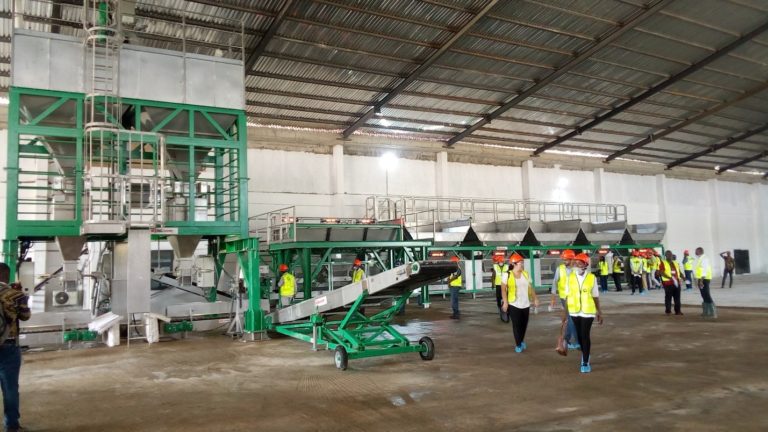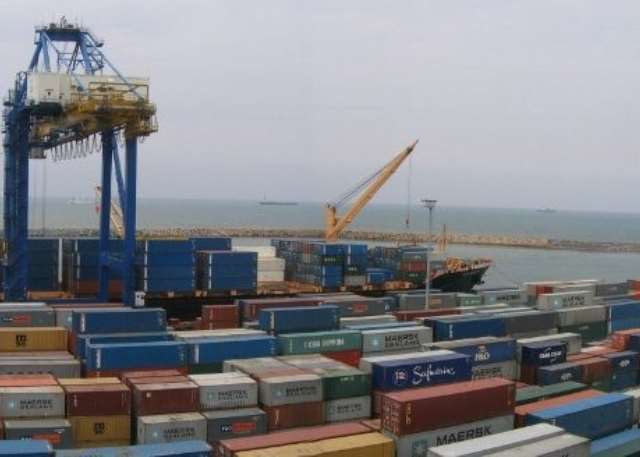The Ministry of Trade and Industry (MoTI) and the One District One Factory (1D1F) Secretariat have given the green light for the commissioning of the biggest fertilizer blending plant in Ghana set for next month in Suhum in the Eastern Region.
The construction of the facility – Glofert Blending Plant, cost around US$4.5 million and it has a total output capacity of up to 120 tons per hour (2,400 tons per day) which translates into nearly 900,000 tons per annum.
Its establishment is crucial because majority of small holder farmers in the country have issues with yield and as a result, most of the crops they produce have over 50 percent yield shortfalls compared against what they could deliver. This is attributed primarily to poor agronomic practices and wrong application of fertilizer among other factors.
Instructively, the establishment of this new facility – which also ranks among one of the biggest in the West African sub-region – would assist significantly in redressing the 50 percent yield gap and thus shore up production.
The facility is also expected to compliment government’s flagship initiative – the Planting for Food and Jobs (PFJ) programme, and enable a substantial reduction of fertilizer imports.
According to the United Nations COMTRADE database on international trade, Ghana’s imports of fertilizers during 2017 were worth US$210.71 million, as volumes rose to 444,236 metric tons in that year as against 239,883 metric tons in 2016, representing an 85 percent increase. The huge increase was instigated by the implementation of some new agricultural policies, particularly the PFJ programme as well as the usual fertilizer subsidy programmes executed in the sector.
Speaking with the Goldstreet Business at the factory site in Suhum during an international workshop on delivering balanced crop nutrition to small holder farmers, the Chief Executive Officer (CEO) of Glofert Blending Plant, Mr. Foster Benson, said the company would offer tailor made nutrients solution to farmers cultivating various types of crops as well as complement government’s efforts in the 1D1F initiative.
“During full time production, there is close to about 220 people working here as employees. That is the essence of 1D1F. It is a good initiative and that is why we are supporting the programme whiles we also support farmers and PFJ”, Mr. Benson reiterated.
The facility is a “single line, state-of-the-art declining weight blend system with five large hoppers and three smaller hoppers for secondary and micro-nutrients” completed last year November.
Its key blended products include Nitrogen, Phosphorus and Potassium (NPK) for rice, millet, maize, sorghum, cotton and among others.
The facility was chosen by the International Fertilizer Development Center (IFDC) – the global regulator of fertilizers, to host its 2019 field trip. The purpose of the trip was to assist participants to bring balanced crop nutrition to smallholder farmers and learn how to better produce fertilizers for optimal production.
Ghana has moved from blanket fertilizers to balanced fertilizers. What this implies is that farmers would have to use different types of fertilizers depending on the crop and this requires a process to know what is in the soil and what the crop needs.
“Such a blending plant will produce the exact fertilizer that is required by the crop”, Patrice Annequin, leader of the IFDC group said.
















